Whitewashing Brick
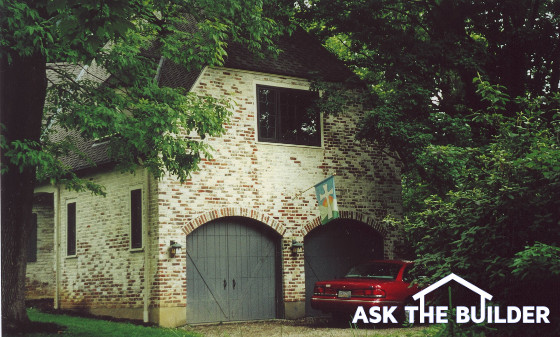
This is one side of the addition I built and whitewashed. The faded look and exposed brick were done on purpose to match the 70-year-old whitewash look on the remainder of the house. I would bet you dinner at the finest restaurant in Cincinnati, OH, that you could not tell a difference between my whitewash and the 70-year-old stuff. We nailed it! This was the lead story in the January 17, 2017 AsktheBuilder Newsletter. © 2017 Tim Carter
"Real whitewash made with lime doesn't have to be recoated. It can last 70, or more, years and still look good. Thinned paint will fail in a few years."
Whitewash Brick TIPS
- REAL whitewash doesn't peel like paint
- Whitewash can be tinted any color!
- It's DIY friendly - easy to mix and apply
- Materials are very cheap - SECRET recipe Below
- CLICK HERE to Get Tim's FREE & FUNNY Newsletter!
LISTEN to the third call in the above podcast. I talk about whitewash!
CLICK or TAP HERE to get FREE BIDS from local painters who can apply REAL WHITEWASH to your home.
DEAR TIM: I have a brick cape cod home built about 50 years ago that is a little worse for wear. Some time ago, a previous owner added a room that is covered with wood siding.
I think painting the brick would give a more uniform look, but I've been told I can whitewash brick. What is the best product to use? Some websites I see say that whitewash is diluted paint.
Is that true? Is a primer necessary if I decide to paint? Does anyone even whitewash before or is that just something that Tom Sawyer did in the classic book Huckleberry Finn? Terri W., Decatur, GA
Is Thinned Paint #FAKE Whitewash?
DEAR TERRI: Those websites plying paint as whitewash are bogus in my opinion. They're hijacking a time-tested coating process that's far superior to paint.
The advice on the other websites is wrong if they say to use paint. High-quality paints are formulated to grab tenaciously to masonry surfaces. But be aware that once you apply paint or any other film to brick, you begin a vicious cycle of periodic maintenance and cost.
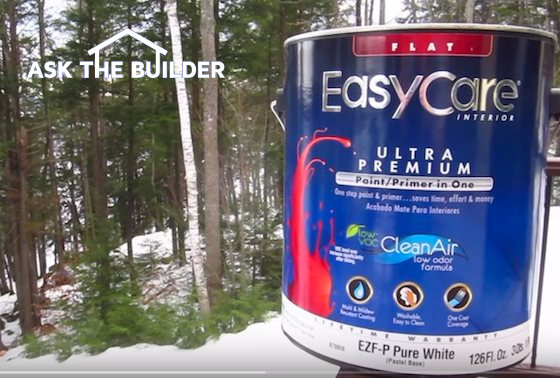
This is a typical can of paint. Read the label and see how little water you can add to it. Add more and you dilute the glue too much. Copyright 2017 Tim Carter
You'd NEVER catch me painting any brick I own. I'm going to do what painters did hundreds of years ago. I'm going to put on traditional time-tested whitewash!
CLICK or TAP HERE to get FREE BIDS from local painters who can apply REAL WHITEWASH to your home.
Does Added Water Ruin Paint?
Adding water to paint so you can use it as a thin whitewash ruins the paint.
The biggest problem I have with paint is that when it dries, it creates a film on whatever it's covering. This film can, and will, peel off eventually. It also chips and flakes.
The glue in the paint is RUINED when you thin the paint with water. The advice you see on the cable TV shows and other websites would NEVER EVER be approved by the chemists at the paint companies who make the paint.
High-quality house paint that does stand up longer than cheap paint can be very expensive. Even a small house might take hundreds and hundreds of dollars of paint.
Your desire to make your home look better and do it with little future maintenance is possible if you consider a coating that has almost been forgotten. Whitewash!

CLICK this podcast player and listen to the THIRD CALL where I talk about whitewashing. Copyright 2020 Tim Carter
Related Links
Whitewash Recipes and Pigments
DIY Whitewash an Interior Brick Fireplace
Why Does Whitewash Work?
Real whitewash made with lime and salt works because it is nothing more than a thin coating of hard rock. Rock is durable and the whitewash crystals interlock with the whitewashed surface like Velcro®.
I had the joy of applying whitewash to a large brick room addition I built years ago for a client. This inexpensive but durable coating looks as good today as the day it was applied.
A little-known fact about whitewash is that it can actually be tinted a light color if you don't like the brilliant traditional white color. You can tint the whitewash any color you desire. I had to tint the slurry I applied different shades of gray to match the dirty whitewash on the existing home. We did such a good job that no one knew the giant room addition was new!
Whitewash, since it doesn't produce a thick film like paint, can last 20 or 30 years with no maintenance.
What is a Secret Whitewash Brick Recipe?
There are many different recipes for a whitewash but the basic ingredients are the same. The most basic formula is simply a combination of hydrated masonry lime and regular table salt. The whitewash I used was made by mixing:
- 50 pounds of hydrated lime
- 10 pounds of table salt
- Water
The consistency of the mix should resemble pancake batter.
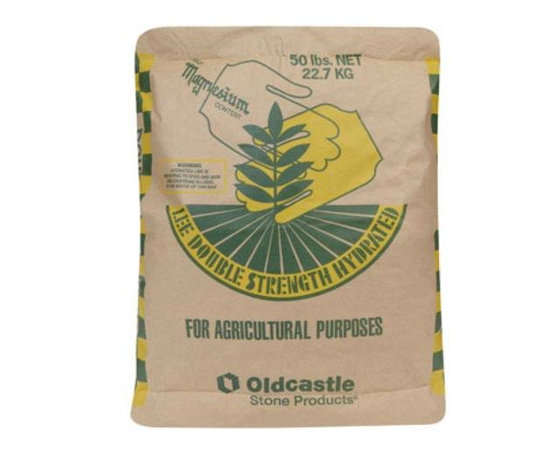
This is great hydrated lime. It's label for use on farms, but believe me, it's GREAT to use for brick, stone mortars, and whitewash. CLICK THE PHOTO OF THE BAG NOW TO HAVE THIS DELIVERED TO YOUR HOME IN DAYS.
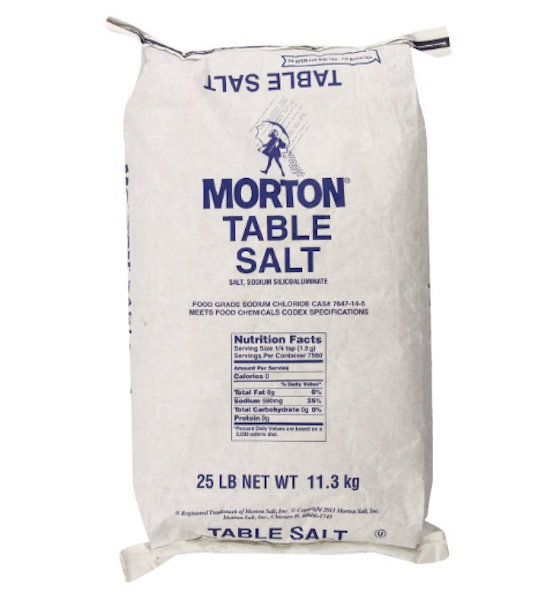
Here's a giant bag of salt. You may need two or three depending on how much whitewash you mix up. CLICK HERE NOW TO ORDER IT.
Can you Tint Whitewash?
You can tint whitewash any color using dry pigments. These are the same pigments used in paint.
If you don't tint the whitewash, when it dries it's a brilliant white. It's as white as the freshest snow you've seen or as white as puffy gorgeous clouds on a summer day.
The best tints to use are the pigments used to tint brick mortar. These pigments are a fine powder that blend easily with the hydrated lime. They're available in just about any color you might imagine.
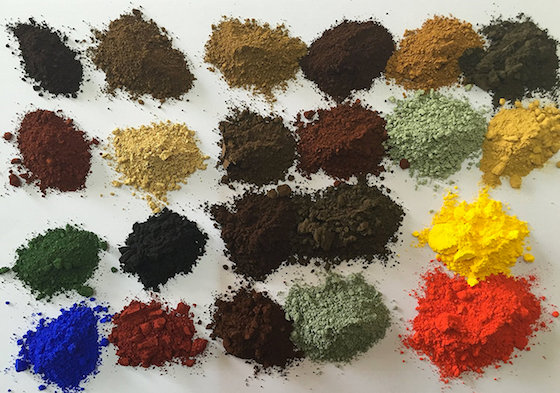
Here are just a few of the many many pigments available. You can blend different pigments to get different shades that you don't see here! CLICK THE IMAGE TO BUY ANY WHITEWASH PIGMENT YOU WANT.
If you want to tint or colorize the whitewash, it's easy. Simply purchase powdered pigments that are mixed with the whitewash.
BLENDING TIP: Always mix the hydrated lime, salt, and any pigments together DRY until the powder is a uniform color. Don't cut corners.
Mix it in a wide wheelbarrow or some other container where the material doesn't get stuck in a corner. A five-gallon bucket is the WORST thing to use to mix the materials.
CLICK or TAP HERE to get FREE BIDS from local painters who can apply REAL WHITEWASH to your home.
How Much Water Do You Add to Whitewash?
Add water to the blended mix a little at a time. I'd NEVER mix a 50-pound bag of lime at one time. Start with a small test batch and keep very close track of how much water you add. Mix until it's the consistency of creamy latex paint or a nice batch of pancake batter.
Only mix as much whitewash as you can apply in one hour! Try to work in the shade, not in direct sun on a blazing hot day.
A sunny day with a breeze is the WORST time to apply the whitewash. An overcast day with no wind would be my choice if I was allowed to wave a magic wand!
Be aware that the color of the whitewash, while it is mixed, is totally different when it dries. It usually dries darker than what you see it look like wet. Always do a test to see what it dries like.
IMPORTANT TIP: I suggest you mix a test batch, apply it to a piece of cement board underlayment and allow it to dry for a week to make sure you like the color. Carefully keep track of the ratios of pigment, lime and salt to get consistent color results with each batch.
CLICK or TAP HERE to get FREE BIDS from local painters who can apply REAL WHITEWASH to your home.
How to Whitewash Brick?
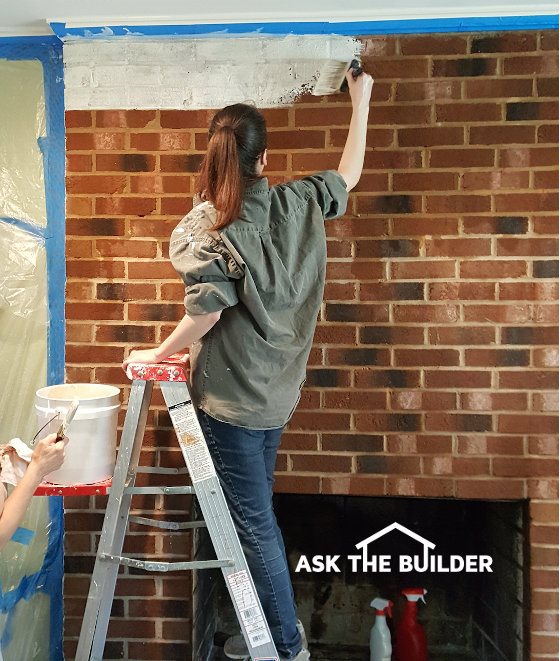
Maggie's daughter is applying the thick real whitewash. Don't use paint as the wanna-bes do. Paint is for losers. Copyright 2020 Tim Carter
Whitewash is applied to brick with a brush or a roller but brushes seem to work best. One of the interesting qualities of this material is that you can make your home look like a gracious English cottage.
It's a thick mixture and only one coat is necessary.
The application is like the German smear, but I simply applied it with a thick-napped paint roller.
It's very very easy to apply.
This is achieved by varying the thickness of the whitewash. The areas where the whitewash is applied lightly will allow some of the brick color to show through. If you desire an authentic old look, you actually wash off some of the whitewash several hours after application or the next day to expose brick or parts of brick in random areas.
What is a Secret Super-Strong Whitewash?
A super-strong whitewash is one made with hydrated lime. Paint is not whitewashing and don't use it for that purpose.
The lime in the whitewash is the actual glue that bonds to the brick and the wood on your addition. If you want extra holding power you can actually mix white Portland cement to the whitewash. Yes, Portland cement comes in a pure white color. You can find it readily doing an online search.
If you decide to use white Portland cement, you substitute only ten percent of the lime quantity you're using. Sounds confusing, right?
Say you're mixing up a batch using my recipe above. It calls for 50 pounds of hydrated lime. You'd get five pounds of white cement and blend it with 45 pounds of the hydrated lime to get to the 50 pounds total.
Five pounds is ten percent of fifty pounds. You should have paid attention in your grade school math class. 😉
Build a Test Wall
I've done quite a few phone consult calls over the years for people just like you who really want this gorgeous whitewash on their new homes. CLICK HERE if you want to schedule a phone consult.
My advice in all past calls is simple. You need to build a small brick wall, say 4-feet tall and perhaps 12 feet long. It would take a good bricklayer about a half-day to do this. Be sure the wall is braced so it will not blow over or tip as you apply pressure to it.
This wall becomes your palette and playground. You'll mix up small batches of whitewash and test them on this wall. Be sure to use the exact same brick on this test wall with the same mortar that will be used on your home.
You don't want to experiment with your technique on your real home. You use the test wall to PERFECT your technique or that of the painter you hire.
How Can I Wash Off Mistakes?
If you do a test and the next day you know you HATE the result, use a pressure washer to remove your mistake. This gives you more wall to use for future testing. But only remove the whitewash if you truly hate the look.
Keep exact records of each batch and consider videotaping the application process of how each test was done. This may seem extreme, but it's not.
You'll soon discover the whitewash does not have to be thick to get an amazing result. Try applying it with a roller. Try different brushes. The look will be different with both. Just play around and see what you like!
How Long Do I Wait to See The Final Color?
Be sure you allow the whitewash to dry for a few days to see the final color.
If my whitewash technique does not interest you, then visit a paint store. Virtually every paint manufacturer makes exterior paint formulated for brick and wood. Look for ones that have a blend of urethane and acrylic resin. These are very sticky and will bond well to the brick and wood. At the very least purchase a 100 percent acrylic resin paint. Read the label and use the specific primer suggested for unpainted brick or wood.
But remember, you will be scraping off some of this paint in years to come. You'll never scrape off whitewash!
How Do You Maintain Whitewash?
There's no maintenance for whitewash brick. The whitewash is a thin coat of rock on the brick.
If it gets dirty, just wash it off using certified organic Stain Solver oxygen bleach and some liquid Dawn dishwashing soap.
Whitewash doesn't need to be sealed and it doesn't need to be re-applied. The house you see in the photo above was built in the 1920s. The original coat of whitewash is still on the house and looks superb.
CLICK or TAP HERE to get FREE BIDS from local painters who can apply REAL WHITEWASH to your home.
Column 366


121 Responses to Whitewashing Brick